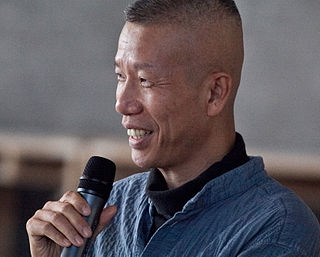A Quote by Derrick Jensen
Many Indians have told me that the most basic difference between Western and indigenous ways of being is that Westerners view the world as dead, and not as filled with speaking, thinking, feeling subjects as worthy and valuable as themselves.
Related Quotes
So many indigenous people have said to me that the fundamental difference between Western and indigenous ways of being is that even the most open-minded westerners generally view listening to the natural world as a metaphor, as opposed to the way the world really is. Trees and rocks and rivers really do have things to say to us.
Even though China was a very closed country, they thought of themselves as the center of the world. It is an ethnic characteristic. After I went to Japan, I had a totally different view. The Japanese are always talking about what the Western world is doing. There is the anxious feeling of an outsider.
We know from our recent history that English did not come to replace U.S. Indian languages merely because English sounded musical to Indians' ears. Instead, the replacement entailed English-speaking immigrants' killing most Indians by war, murder, and introduced diseases, and the surviving Indians' being pressured into adopting English, the new majority language.
The most rewarding part of my work is the "Aha" moment, the excitement of discovery and enjoyment of understanding something new - the feeling of being on top of a hill and having a clear view. But most of the time, doing mathematics for me is like being on a long hike with no trail and no end in sight. I find discussing mathematics with colleagues of different backgrounds one of the most productive ways of making progress.
Many scientists have been drawn to Buddhism out of a sense that the Western tradition has delivered an impoverished conception of basic, human sanity. In the West, if you speak to yourself out loud all day long, you are considered crazy. But speaking to yourself silently - thinking incessantly - is considered perfectly normal.
The ability to help others gain insights seems very important to me, and I think one of the most effective, but most difficult, ways is to listen sympathetically when people seem to be saying stupid things or thinking in confused ways. Rather than write them off, we can try to diagnose what is wrong with their thinking - what flawed belief they might be holding. And then search for ways that enables them to discover the flawed belief for themselves.

































